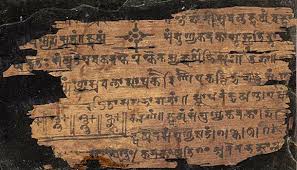Today’s story is not about a person but about a number. A number which holds no value, signifies literally nothing, had no takers for why should it even exist and it didn’t for a long, long time. However, once it was given birth, it became the most important number in the world.
Can you guess what number am I hinting at?
In the annals of mathematical history, the concept of zero stands out as one of the most revolutionary ideas ever conceived. At a time when the very notion of representing nothing with a symbol seemed absurd, the invention of zero transformed mathematics and laid the groundwork for the modern, digital world. This once-weird-now-obvious number turned a philosophical and numerical conundrum into a tool of immense power and utility.
Let us look at the journey of this number and why it is so significant.
The Life Before ZERO
Before the invention of zero, mathematics was an arduous task. Calculations were performed using tools like the abacus, which could not easily represent the absence of a value. The idea of needing a symbol for “nothing” was seen as counterintuitive and unnecessary. Think of the questions which killed any need for invention of Zero.
Why “nothing” need representation of its own?
Why should absence of value hold any significance?
And, Why even contemplate representing “nothing” with a symbol?
Yet, this very idea became the cornerstone of a major mathematical breakthrough.
The Birth of ZERO
The journey towards the invention of zero began in the vibrant intellectual environment of ancient India. One of the key figures in this story is Aryabhata, an Indian mathematician and astronomer born in 476 CE. Aryabhata’s work laid the foundation for many mathematical concepts, but it was his role in the conceptualisation of zero that stands out.

(Sri Aryabhata, Inventor of Zero!)
In Aryabhata’s seminal work, the “Aryabhatiya,” he used a small dot underneath numbers to indicate their place value, which included the absence of a value in a particular column. This dot, known as “shunya” in Sanskrit, meaning void or empty, was the precursor to the modern zero. Aryabhata’s innovative use of this placeholder allowed for more complex calculations and the development of a positional number system.
The First Use of ZERO!
Babylonians and Mayans had concepts of zero only as a placeholder. For example, Zero in 205 indicated that there are no tens in the number. In a world which struggled to see the need for Zero to exist on its own, it was in India that zero evolved into a number and use it in day today calculations.
Clear evidence of the early use of zero in India comes from the Bakhshali Manuscript, an ancient Indian mathematical text discovered in a village in present-day Pakistan. This manuscript, which dates back to the 3rd or 4th century, was used by merchants for practical arithmetic. It contains numerous examples of a dot used to denote an empty place in calculations—a clear representation of zero.
This transformation was nothing short of revolutionary. Zero became not just a placeholder but a number in its own right, capable of being used in calculations and equations. This leap enabled the development of advanced mathematical fields such as algebra and calculus.

(the Bakhshali Manuscript)
Revolutionary Impact of ZERO
The introduction of zero democratised mathematics, making it accessible to a broader audience and no longer confined to the elite. It allowed for the accurate recording of large numbers and facilitated more complex computations. The impact of zero extended far beyond mathematics; it played a crucial role in the development of science, engineering, and technology.
In the digital age, the concept of zero is fundamental. Binary code, the language of computers, relies on the simplicity of zeros and ones. This binary system forms the backbone of modern computing, demonstrating the enduring legacy of zero.
The Legacy of ZERO
The story of zero is a testament to the power of abstract thinking and human ingenuity. It reminds us that even the most counterintuitive ideas can lead to profound advancements. The invention of zero transformed how we understand and interact with the world, highlighting the limitless potential of human innovation.
By celebrating the achievement of zero, we acknowledge the profound impact of this seemingly simple concept. It stands as a symbol of the impossible made possible, a reminder that through curiosity and perseverance, we can unlock new realms of understanding and create a future filled with infinite possibilities.



